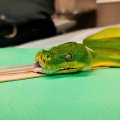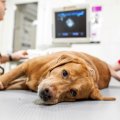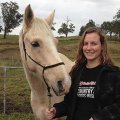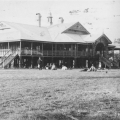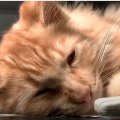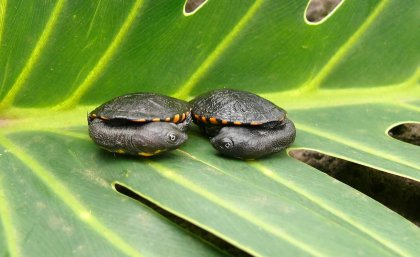
Fifteen eastern longneck turtle hatchlings have a fighting chance at life after they were rescued and incubated as eggs by a veterinary technician at The University of Queensland.
The eggs were in need of urgent care after their mother was taken to the UQ VETS Small Animal Hospital in Gatton by a member of the public after being hit by a car in October.
UQ VETS lead veterinary technician Gary Fitzgerald said the wild female turtle had a badly fractured and crushed shell.
“Sadly her injuries were critical and she was too badly injured to save,” Mr Fitzgerald said.
“We had to make the decision to euthanise her, but first we x-rayed her to check her if she had any eggs.
 “We found 15 eggs so we performed an emergency C-section under anaesthesia to retrieve them.”
“We found 15 eggs so we performed an emergency C-section under anaesthesia to retrieve them.”
The UQ VETS Small Animal Hospital staff treat many fractured shells in spring and summer as turtles search for a water source after dams and creeks dry up, or seek somewhere to lay their eggs.
Mr Fitzgerald, a reptile expert, said he took the eastern longneck turtle eggs home for incubation until they hatched.
“The eggs incubated for 67 days before they finally started to hatch, and it took about 48 hours for each of them to break out of their shell,” he said.
“While it’s cool to see them breaking out of their shells, it’s also difficult to restrain yourself from helping them.
“They put so much effort into getting out of the shell, but during that time they are still in the process of absorbing their yolk.
“Baby turtles are fully independent after hatching in the wild, so I placed these hatchlings in a tank with shallow water and a turtle dock, and fed them until they were ready to be released a few days later.”
UQ VETS Small Animal Hospital surgeon Dr Jayne McGhie stepped in and identified a safe water source for the baby turtle release near where their mother was located.
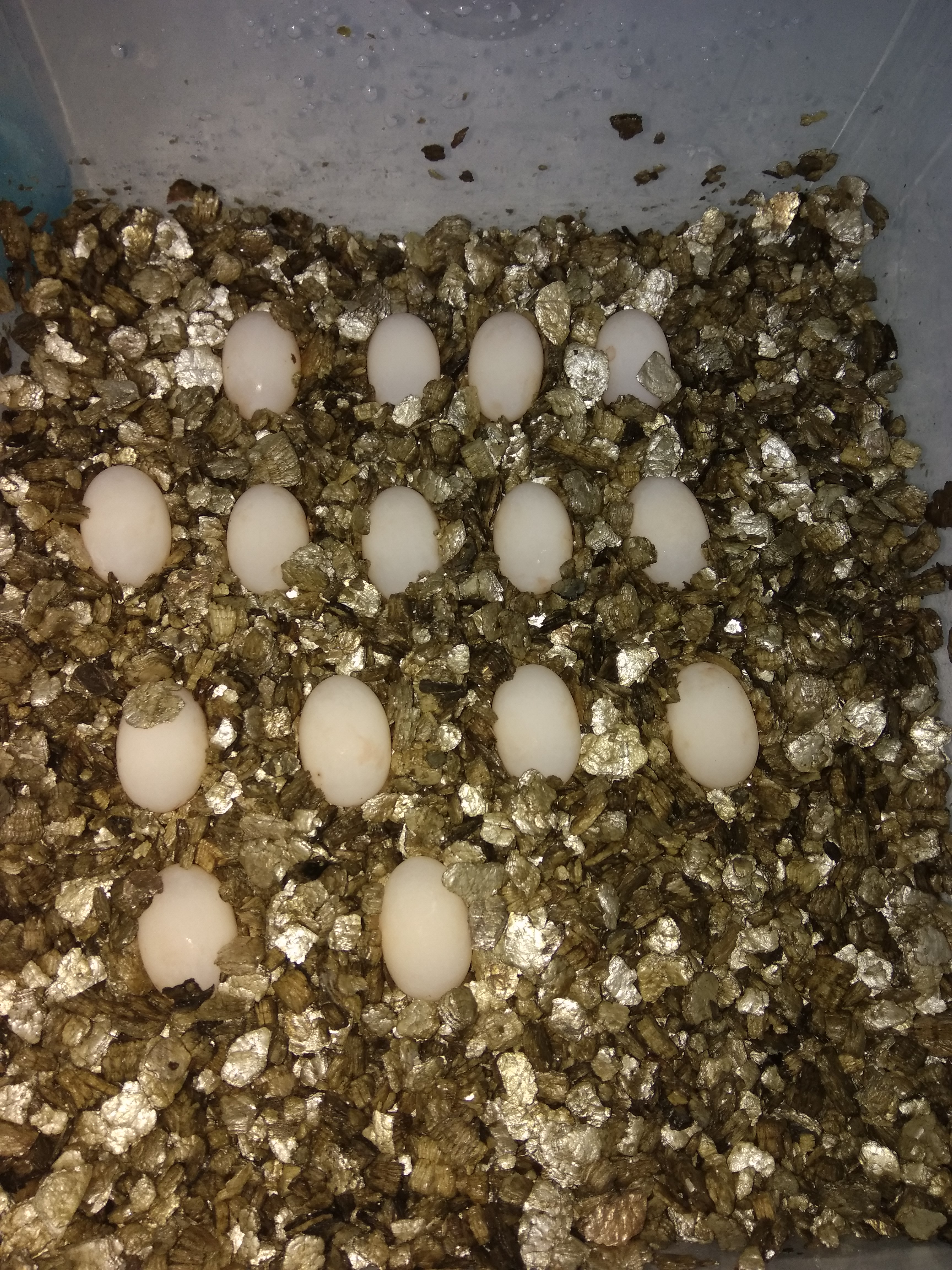 “We put the baby turtles on lily pads and watched them as they slipped into the water,” Dr McGhie said.
“We put the baby turtles on lily pads and watched them as they slipped into the water,” Dr McGhie said.
“It was beautiful to watch. I hope they now grow up and become nice fat turtles who have their own clutches.”
Mr Fitzgerald has since incubated two more turtle egg clutches.
“It’s very important for anyone who does come across an injured animal to get it to a vet, because sometimes out of tragedy, good things can happen,” he said.
The UQ VETS Small Animal Hospital receives no government funding for wildlife care, and relies on community support through the UQ Wildlife and Emergency Care Fund.
The hospital has about 1000 wildlife patients a year, providing educational opportunities for veterinary students.
Donations to the fund to care for our native animals are always welcome and can be made here.
Turtle eggs rescue from The University of Queensland on Vimeo.
MEDIA: UQ Communications, Belinda McDougall, communications@uq.edu.au, +61 7 3346 7890
.jpg)

